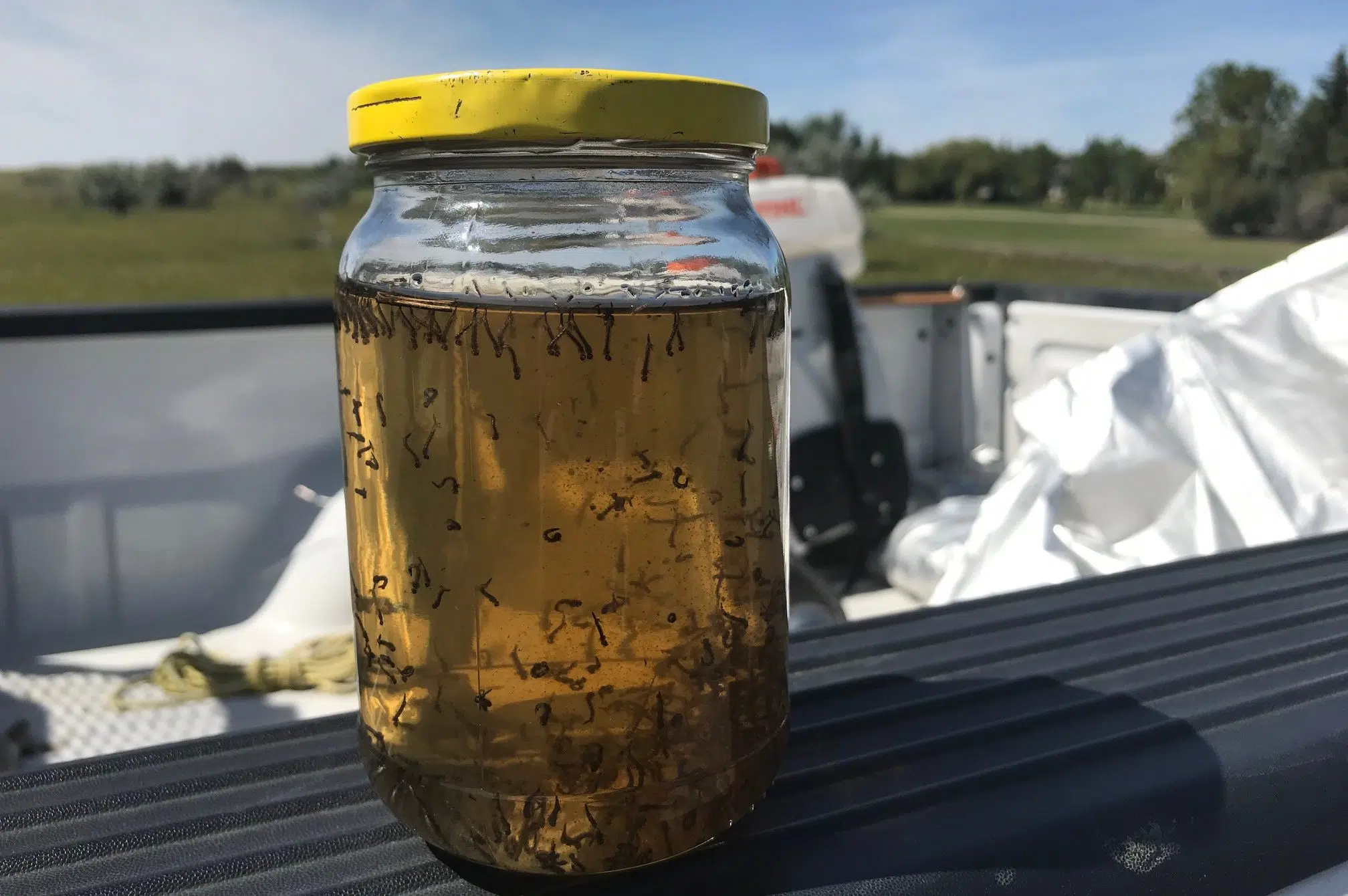Cooler weather may be creeping in, but with it comes one good thing — lower mosquito counts.
The insects’ numbers rapidly increased throughout the summer, but this week they finally dipped below the average. Trap counts this week averaged 55, with the normal average for this time of year being 59.
Russell Eirich, the City of Regina’s program co-ordinator for forestry, pest control and horticulture, said Tuesday a number of conditions helped in reducing mosquito counts.
“What we saw was some drying conditions, which certainly helped us out,” he said. “We’ve also seen some emergence of dragonfly adults starting to help us out a little bit, (and) the cooler nights will definitely help us out. That makes mosquitoes less active.”
We've been working hard to get mosquito numbers down. 🦟 On average we use 15,000 kg of VectoBac each season… this year we have already used 18,100 kg!
Good news is we've finally gotten the mosquito count below average for this time of year. #yqr pic.twitter.com/dgk6bsGy53
— City of Regina (@CityofRegina) August 20, 2019
With last week’s big rainfall, however, numbers are expected to increase a little. Coupled with that, Eirich added that summer isn’t over yet and crews will continue to spray for mosquitoes for about another month until the frost hits.
Compared to other years, mosquito numbers have been high and more resources were used to control them.
“As of (Monday) we put out 18,100 kilograms worth of VectoBac, the product we use to kill mosquito larvae,” said Eirich. “We generally average 15,000 kilograms of product (and) we still have a full month of our mosquito program to go.”
Residents are asked to continue to dump any standing water they may have in their yards to help reduce mosquito counts.
Dutch elm disease remains
Eirich confirmed there have been 14 cases of Dutch elm disease in the city this summer. All 14 trees have been addressed.
Residents can begin pruning their elm trees Sept. 1.
The province prohibits elm pruning until September due to the presence of the elm bark beetle, which carries the disease.
Residents are asked to not bring any elm wood into the city to use for fires, as it could help spread Dutch elm disease.







